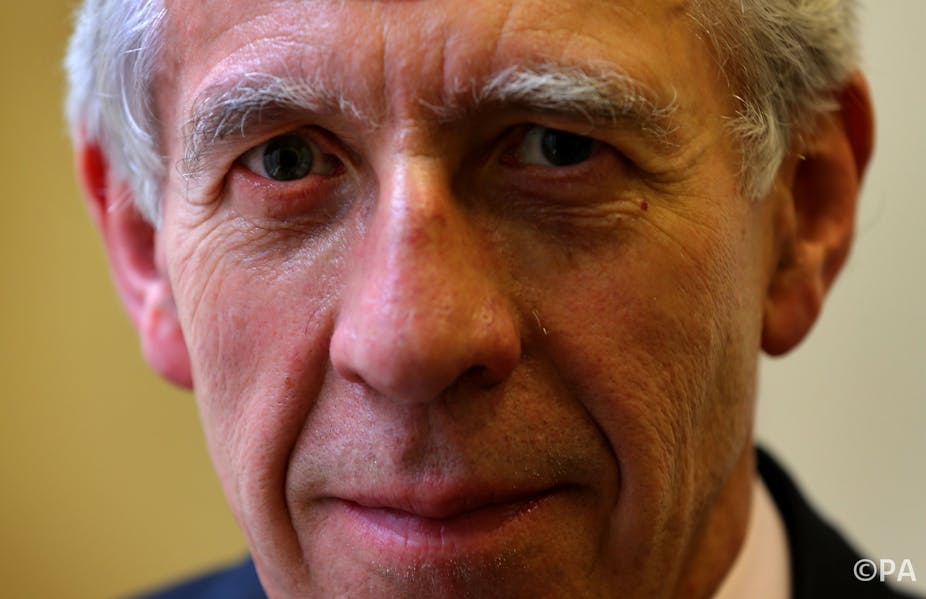With both Malcolm Rifkind and Jack Straw now suspended from their political parties for apparently offering influence for money, questions are being asked about whether members of parliament should be allowed to sell their services to people or groups.
Meanwhile, the UK pushes other countries to stamp out corruption of all kinds. The UK does in fact have a long history of trying to clamp down on unethical behaviour by people in public office. The trouble is that the laws brought in to stop it are not properly enforced.
There is nothing wrong in principle with trying to influence politics – and even using money to do it. Lobbying has always been an accepted part of politics. We tend to think of corporations as the main influencers in this respect but lots of organisations do it, from single-issue lobby groups to campaign groups, to non-governmental organisations to trade unions.
They all use money to influence the media and politicians. They spend their budgets on putting together briefing papers and other materials to lobby and persuade the people who can make changes that benefit them. Problems arise when the relationship becomes a direct transaction though. When money changes hands between lobbyists and politicians for a specific purpose, it starts to look bad. There are laws against this – and for good reason.
In the 18th and early 19th centuries Britain was notorious for its corruption. In the 1850s, reforms were brought in to clean up the relationship between civil servants and business. But even though there was, from then on, a law making misconduct in public office an offence, a series of scandals ensued. Local government remained notorious for cases of corruption.
Many felt more legislation was needed and so the Public Bodies Corrupt Practices Act was created in 1889 (aimed at local government), followed by the Prevention of Corruption Acts in 1906 and 1916. These acts criminalised a series of actions which involved public officers acting dishonestly, acting against the public interest and engaging in offences such as bribery (either doing or not doing something – even if it is something that is part of your public role – in return for money or some other such reward).
These Acts were updated in the 2010 Bribery Act, this was partly to reflect the fact that public officials working in a neo-liberal democracy might find themselves in a sensitive position. In a system that allows a state to privatise or contract out many of its functions to private interests, from criminal justice to IT to railways to health services, corporations become very powerful.

Civil servants and MPs may be in charge of, or know about, government contracts, privatisations, upcoming regulations and other information which may be of great monetary value. They may also be senior, long-serving figures who have a wide range of contacts and so can find out about and influence these things if they put their minds to it.
This interface between public and private has long created risks of unethical activity and, if anything, has become increasingly murky over the past few years. While Rifkind and Straw deny breaking any rules, they were filmed by journalists offering to use the contacts they have made in office to further the interests of a fictitious company in exchange for cash. Their parties have taken a dim view of their actions – and voters will no doubt feel the same way.
The issue here is who was offering or asking for cash for what services. One of the other MPs approached by the undercover journalists said his contacts were not for sale, so he clearly understood what the journalists were asking for.
The issue is, are MPs taking or offering to take money from a private party to act in their role and capacity as MPs? In other words are they as public officials taking money to act for a private rather than a public interest? This is now something for the parliamentary and party authorities to investigate. However the undercover filming looks sleazy, so in addition to any rules they may or may not have broken, the perception of these MPs is they have been caught doing something which looks bad when exposed to the light of day.
Nor are these two former foreign secretaries the first to make such promises. Politicians from all sides of the house have been caught offering to sell their name and influence to lobbyists. And all this goes on while the British government, through its aid arm, the Department for International Development, lectures and advises governments across the world about the need to curb corruption.
It is essential that politicians and other public officials do not commit acts of corruption or behave unethically. But it is just as important that they are not seen to be corrupt and unethical.
The British public has, over the past ten years, been exhorted by politicians and public officials to pay their taxes, work harder, take responsibility for their children, take responsibility for the environment and back UK government military action everywhere from Afghanistan to Libya.
Yet again, it seems that behind this curtain of moral urging, questionable relationships between public officials and corporations are taking place. The UK needs to demonstrate to the world that, in the jargon, its own “good governance” is good enough. However the problem in the UK is not the lack of legislation – it is the lack of enforcement.

